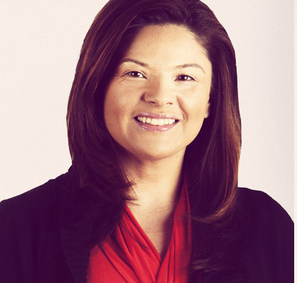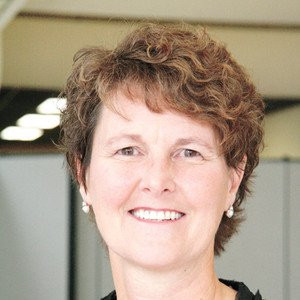Guest MINDSETTER™ Audra McPhillips: Helping Families Adapt to Common Core Math
Friday, July 24, 2015
If you’ve paid any attention to education over the last few years, you know that Rhode Island has adopted the Common Core State Standards (CCSS). The CCSS were developed by state leaders, researchers and teachers to prepare students to thrive in the 21st century.
Teachers and parents need more information about these standards and the best practices for supporting students. As a Pre-K-12 math specialist/instructional coach for the West Warwick Public Schools, I support teachers’ implementation of standards through professional development and classroom coaching. I also support parents by sharing information about math strategies that their children will be using.
Common Core vs. “Traditional” Math Instruction.
As our district has transitioned to the CCSS, many parents have noticed that the ways in which their children are approaching math problems look different than the way math was taught in the past, and they are asking how to best help their children succeed.
GET THE LATEST BREAKING NEWS HERE -- SIGN UP FOR GOLOCAL FREE DAILY EBLASTFor many of us, math concepts were taught as a checklist of isolated topics. We’d learn something in class, take the test and then move on to something new. By contrast, the CCSS include a focus on three or four major concepts each year. This allows teachers and students to focus deeply on these areas in order develop understanding and make meaningful connections between concepts.
The intention is for students to develop an understanding of how mathematics concepts fit together in a meaningful way. Teachers and students now have time to both develop solid understandings along with mathematical fluency, so that they will not have to revisit the same topics every year. When school starts in the fall, students will be able to build on the fluency and the understandings they developed during the previous school year.
One of the things that often catch parents’ attention is that teachers don't focus immediately on the “traditional algorithm” for operations. This is an intentional instructional strategy that helps students develop strong conceptual understandings before they learn the “trick” to a given problem. Alternate algorithms are powerful, since many can be applied to work with rational numbers, expressions and equations. Under the Common Core standards, students will still learn the strategy that most adults are comfortable with, but that strategy will be supported by the strong conceptual understanding they develop first.
Consider the example of a 4th grade student. James is learning about multiplication using a visual called an area model. The area model is powerful, because it helps James to see the structure of multiplication using decomposition, recomposition and the distributive property. Moreover, it will be a useful model for James when he works with mixed numbers in middle school, and will continue to work for him when he multiplies binomials and trinomials in high school. As James moves through the grade levels, this model will help him to connect and build from his understandings of whole numbers. While these strategies seem new and different, they serve students well in terms of developing solid mathematical ideas and connecting important concepts across the grade levels.
When students become 5th graders, the teacher will help students to build a bridge between the strong understanding of multiplication developed using the area model and the traditional algorithm. Research clearly indicates that once students know the “trick” or the algorithm, it is hard for them to go back and understand why it works. Consequently, the choice to place this in the 5th grade standards was purposeful to allow for strong conceptual development in the earlier grades.
Increasing Student Achievement
Standards, in and of themselves, do not raise student achievement. Teachers in our district have embraced the research-based strategies in the American Federation of Teacher’s Thinking Mathematics Professional Development. This PD is based on the best research around how students learn mathematics. Now that we’re a few years into the transition to CCSS, both in terms of the new standards and this professional development, we are seeing some exciting things in our classrooms.
In one of our inclusion kindergarten classrooms, we were engaged in a rich six-week unit on decomposition. Students used a variety of tools to decompose numbers within 10. They were expertly using rich math vocabulary—with terms such as decompose, recompose, equal and commutative property—and applying these sophisticated words to games that involved “bunny bowling,” clothes-hangers and clothespins, hands-on number bonds and bead bracelets.
Approaching such an important math concept in this way allowed for play and exploration and resulted in development of strong understandings. Teachers modeled color-coded equations to match the math thinking with the tools. By the end of the unit, every student in that room was able to find all ways to decompose 10 into two addends. The majority of them could write an equation to match and explain their thinking in a way that showed a strong understanding of the concept!
One of the parents in our district, Alicia Proulx (who is also a reading specialist), told me that she heard her first grade son talking to himself about math: “I heard him saying, oh, 9 plus 6. Well, I'm going to add 1 to 9, because that would make a 10, because 10 is a friendly number, and then 10 plus 5 is 15. I know that he's not hearing that from me and it was amazing to hear him talking like a mathematician.” Strategies being taught around making a ten, while seemingly long and drawn out, are supporting this strong mental math and are empowering our youngest students!
Supporting Parents
In West Warwick, we run regular math nights for families at our elementary level, where we offer support around math instruction. It’s an opportunity to work directly with parents and answer their questions.
I’ve also found some websites to be useful for parents, including LearnZillion, which has videos explaining the specific math strategies for each grade level. It’s aimed at students, so it’s quite easy for teachers and parents to follow as well. Another site, Illustrative Math, provides sample problems by grade level. Parents and teachers can see problems that students would be expected to solve, what the standards are asking for, and different ways to solve any given problem. Share My Lesson, which is run by the American Federation of Teachers, has a Common Core section that describes goals for each grade level and includes visuals and useful examples.
We need to do a better job supporting parents and teachers with these important shifts in mathematics. Our intentional work to help parents better understand the CCSS and how they can support their students has been highly beneficial. When we strengthen that partnership between school and home, it is the students who benefit. And at the end of the day, this is all about doing our very best for them.
Audra McPhillips is a mathematics specialist and coach in grades prek through 12 at West Warwick Public Schools.
Related Slideshow: RI Experts on the Biggest Issues Facing Public Education
On Friday November 22, the Hassenfeld Institute for Public Leadership at Bryant University, the Latino Policy Institute of Roger Williams University, the Rhode Island Association of School Committees, the Providence Student Union, and RI-CAN: Rhode Island Campaign for Achievement Now will host Rhode Island leaders in the public and nonprofit sectors for a symposium on "the civil rights issue of the 21st century, adequacy and equity and the State of Education in Rhode Island."
Weighing in on the the "three biggest factors" facing education in the state today are symposium participatnts Gary Sasse, Founding Director of the Hassenfeld Institute for Leadership; Christine Lopes Metcalfe, Executive Director of RI-CAN; Anna Cano-Morales, Chairwoman of the Board of Trustees, Central Falls Public Schools and Director, Latino Policy Institute at Roger Williams University; Tim Duffy, Executive Director, RI Association of School Committees; and Deborah Cylke, Superintendent of Pawtucket Public Schools.
Related Articles
- It’s All About Education: School Choice - Vouchers and Tax-Credit Scholarships Don’t Pay
- It’s All About Education: Failure to Launch - It’s Not Just a Movie
- It’s All About Education: Making a Commitment to Rhode Island’s Children
- NEW: Two RI Schools Given Green Ribbon Awards by U.S. Dept. of Education
- It’s All About Education: How Poverty Impacts Brain Development and Learning
- It’s All About Education: Learning Life Skills at Hope High
- It’s All About Education: After School Programs Make a Difference
- NEW: School Choice Legislation to be Introduced for Education Savings Accounts for RI Families
- It’s All About Education: How Breakfast Could Help Close the Achievement Gap
- Moses Brown School Hosts Annual Education Summit
- It’s All About Education: Choosing the Right School for Your Child
- It’s All About Education: Re-Imagining Our Educational System
- It’s All About Education: Can Education Drive Social Change?
- It’s All About Education: Why Summer Vacation Should Be Just That
- It’s All About Education: Divine Providence: Engaging Community
- It’s All About Education: Transforming Children’s Lives and our Nation’s Future
- GoLocalTV: Raimondo Picks NY’s Wagner for New RI Education Commissioner
- It’s All About Education: What Kids Learn from Sports
- It’s All About Education: An Urban Preschool Grounded in Nature
- NEW: Raimondo Names McConaghy, Foulkes Education Council Chairs
- It’s All About Education: High-Quality Early Learning: Necessary For All
- It’s All About Education: The Arts, Education, and Transformation
- It’s All About Education: A Broader Definition of Education
- It’s All About Education: Reading for Pleasure Predicts Academic Success
- It’s All About Education: Why So Many Choose Progressive Education













